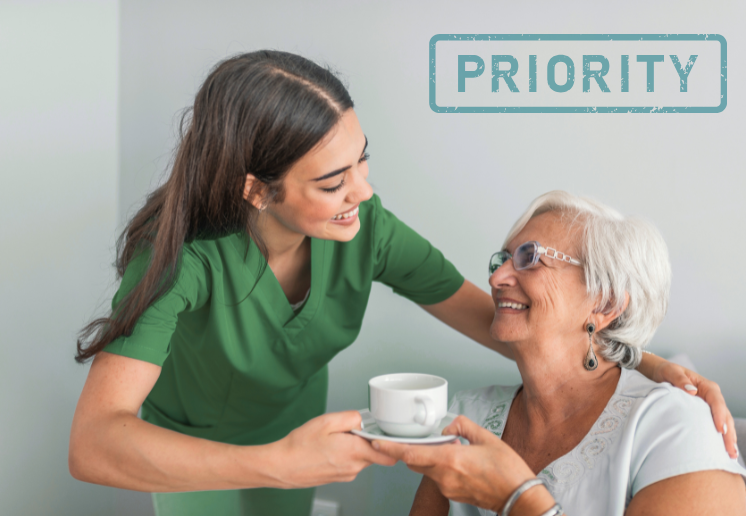Table of Contents
Nurses are the heartbeat of healthcare. Nurses are the first to respond in emergencies, the last to leave the bedside, and a persistent thread throughout a patient’s healthcare journey.
Understanding the Work of a Registered Nurse
In a broad view, nurses provide direct care to patients to prevent illness, recover from illness, or prepare for surgery.
One of the major types of nurses in Canada is Registered Nurses (RNs). According to the Canadian Nurses Association, RNs work “side-by-side” with physicians and other healthcare professionals. Their work is crucial for medical teams and patients because they contribute to early disease detection, better screening, chronic disease management, and health promotion.
An RN’s role and duties vary not only by employer but also by province. This is why the CNA describes that “there is still a need for a national understanding of the optimal role of the RN. Many RNs working in primary care settings do not realize their full potential, including the valuable contributions that they can make to the health of the communities in which they work”.
Responsibilities and Duties of a Registered Nurse
Although the role of a Registered Nurse may vary with every province and the kind of environment they work in, some basic activities and duties are defined by the Canadian Nurses Association. Common registered nurse job duties include:
Comprehensive Health Assessment
Every contact with a patient is an opportunity for a complete health check.
Key elements of a health check:
- Getting the Patient’s History: Finding out what’s going on with the patient’s health.
- Complete Medical Examination: A detailed medical examination, including health history and physical examination, will help to consider the patient’s health status in terms of their mental, emotional, cultural, and spiritual well-being and how the condition has affected their daily life.
- Utilization of Tools and Techniques: Different tools and techniques are used per the patient’s needs.
- Future Care Planning: Checking if there are any advanced care plans or “do not resuscitate” orders.
- Medication Check: The patient’s current medications are documented; over-the-counter and alternative medications are listed, and allergies and intolerances are checked.
- Access to Treatment: Assess access to medications and treatment in terms of their health coverage and living situation.
- Record Keeping: Keeping records of all health checks and assessment data.
- Critical Thinking: Combining all the above information that will flag any health issue and screening problem.
- Following Guidelines: Apply guidelines in clinical practice for screening, monitoring, and assessment for the well-being of patients.
- Laboratory Results: Review lab and diagnostic findings, specialist reports, and history in the assessment.
- Triage: Assess and prioritize patients and their needs.
Healthcare and Treatments
Nurses play a vital role in managing and treating patients with various health issues. They are essential team members who care for complex patients needing extra attention and time to develop a care plan.
Key responsibilities in healthcare:
- Developing Health Plans: Creating a health plan with the patient and other team members.
- Promoting Independence: Encourage patients to have control of their care.
- Effective Treatments: Identify the need for and start effective treatments.
- Patient Involvement: The patient shall be informed of treatment options and be involved in decision-making.
- Support & Assistance: Help the patient implement the health plan, including arranging for medication delivery, transportation, or in-home care, if necessary.
- Consultations: Arrange timely consultations with other healthcare services as required.
- Monitoring and Adjusting Plans: The periodic follow-up and adjustment of the health plan according to the patient’s response to the treatment and any alteration in condition.
- Follow-Up Care: Follow-up care and consultations are provided over the phone and documented the same.
- Patient Education: Describe test results and treatment plans to patients and advise them regarding drug therapies, side effects, and medication interactions.
- Symptom Management: Assisting the patient regarding the management of symptoms, maintenance of health, strategies for rehabilitation, and lifestyle changes.
- Coordinated Care: Ensuring all services and care are coordinated for smooth follow-up.
- Care Conferences: Participating in patient care case conferences to ensure comprehensive services.
- Collaborating with Doctors: Working with family doctors to care for long-term or assisted living patients, including making home visits if needed.
- Accurate Documentation: Keeping accurate and updated patient information, including a comprehensive health summary.
- Managing Medications: Preparing prescriptions or facilitating medication orders and completing necessary documents for accessing treatments.
- Communicating with Providers: Ensuring continuous care by communicating with secondary and tertiary healthcare providers.
- Networking with Agencies: Connecting with community agencies and groups and completing referrals and lab requisitions.
- Filling Forms: Completing insurance and other necessary forms.
- Infection Control: Following infection control practices to maintain safety.
Nurses provide various treatments, such as lifestyle counselling, chronic disease management, medication management, referrals to community resources, wound care, suture/staple removal, insulin education, specimen collection, dressing changes, immunizations, coordinating services, foot care, and more.
In some provinces, nurses can also:
- Recommend over-the-counter medications
- Prescribe contraceptives or other medications
- Adjust insulin doses
- Suture minor cuts
- Manage INR adjustments with the proper documentation and guidelines.
Note: Always check with your provincial college or association to ensure these practices are approved and within the nursing scope.
Health Education
A Registered Nurse’s role involves teaching patients about their condition. This may include optimizing health, enhancing understanding of their condition, and involving patients in the self-management of their health with anticipation of challenges and barriers.
Key parts of health education:
- Determination of Health Education Needs: Determine the need for health education as part of a complete health assessment, including an evaluation of current knowledge, education and literacy level, social supports, and learning preferences.
- Preparation of Teaching Materials: Obtain, develop, and assess teaching materials, considering cultural, language, physical, intellectual, and environmental factors.
- Utilize Education Strategies: Use education strategies and motivational interviewing skills to change behaviour regarding quitting smoking, engaging in active exercise, and healthy nutrition.
- Provide Varied Health Education: Education in various areas, such as healthy living, prevention of injuries and disease, management of disease and care and treatment, family adjustments, and support systems. This would include education on chronic diseases like diabetes, COPD, hypertension, cardiac disease, cancer, and chronic pain.
- Optimizing Every Health-Care Encounter: Every contact with the patient is an opportunity to reassess the patient’s educational needs and provide suitable health education.
- Providing Multiple Education Methods: Create and deliver one-on-one and group education in various environments to optimize accessibility. RNs are prepared to use written, verbal, non-verbal, visual, and internet-based modes of communication to maximize communication.
- Facilitating Environment: Create or support an environment that enables learning and ensures that patients participate in their health goals.
Health Promotion and Prevention of Illness, Injury, Complications
RNs facilitate health promotion and prevention of illness and complications through screening and monitoring, allowing early identification of potential health problems associated with chronic or infectious diseases.
Key strategies for illness prevention:
- Planning Preventative Measures: They establish plans to prevent the onset of sickness and reduce disease complications. They assess the community’s strengths in health matters and monitor trends that may impact it.
- Risk Assessments: Collaborate with patients and other service providers, conduct risk assessments and develop health plans that promote health and prevent illness and complications.
- Ensuring Immunization: Review the patient’s immunization status and ensure that all are current.
- Participating in Screening Programmes: Plan and participate in strategies to recall patients for monitoring and screening, such as diabetes, cervical screening, and hypertension.
- Collaborating with Communities: Collaborate with patients, interdisciplinary teams, and communities in designing, implementing, and evaluating health promotion and illness prevention programs.
- Counselling: Counsel regarding health promotion and illness prevention strategies, facilitating and supporting patients in life transitions, including palliation and death.
- Navigating Health Services: To ensure that patients obtain appropriate referrals and connections to services and programs that assist in achieving their health goals.
- Monitoring Patient Progress: Monitor patients’ progress toward risk reduction and self-management plans and ensure the accuracy of health records and documentation.
Professional Role and Responsibility
RNs are committed to maintaining professional competence and to evidence-based practice. They participate in ongoing professional development, and their expertise contributes to advancing healthcare practice.
Key standards maintained by registered nurses:
- Self-Reflection and Evaluation: Identify personal attitudes, beliefs, feelings, and values concerning health in interactions with patients and their families. Through systematic evaluation, they reflect on personal and team practices.
- Participating in Research and Development: Participate in research studies, conference presentations, and development, implementation, and maintenance of medical directives, policies, and procedures.
- Professional Development: Seek professional development opportunities that are consistent with current primary care practice, new and emerging issues, and the changing needs of patient populations.
- Mentoring and Leadership: Mentor students and precept staff and participate in research studies and assurance initiatives. They also demonstrate leadership in chronic disease management, reproductive health, shared care models, and safety and health.
- Collaboration and Integration: Develop and maintain professional relationships and collaborations with other organizations to advance system integration, effective service use, and optimal patient care.
- Quality Improvement: Identify and collect performance and quality improvement data and actively participate in or lead initiatives to resolve identified issues.
- Professional Memberships: Retain memberships in professional organizations and interest groups. The nature of these memberships ensures that they are current concerning nursing practice.
What are the typical everyday tasks of an RN?
Registered nurses typically:
- Assess and record the patient’s condition and medical history, as well as symptoms
- Observation of the patient and recording any progress
- Administer appropriate medication and treatment.
- Develop or contribute to healthcare plans made for the patient
- Consultation with or referral to other healthcare professional
- Use various equipment involved in conducting tests and diagnosing patients
- Teaching the clients and their families to manage the illness or injury
- Explain how to carry out home care when the medical procedure is completed.
Conclusion
The role of a registered nurse (RN) within the Canadian healthcare system is multidimensional and integral to care delivery. RNs are expected to deliver comprehensive care to patients, from the initial assessment and diagnostic phase through treatment administration to recovery support. They work in hospitals, clinics, community health centers, and patients’ homes, adapting their skills to respond to diverse needs.
Additionally, RNs advocate in matters of health and educate patients and their families about the significance of a healthy lifestyle and preventive measures. This also includes consulting with other healthcare professional to ensure comprehensive care and coordination. The dedication and expertise of RNs are required to ensure the delivery of quality healthcare and the advancement of the outcomes for patients. If you also wish to be part of this growing healthcare landscape and are in search of a nursing review center, then look no further than FBNPC. For years, we have been helping students achieve their goals in nursing. Contact us today!



